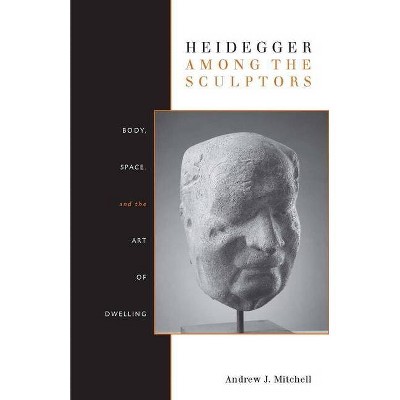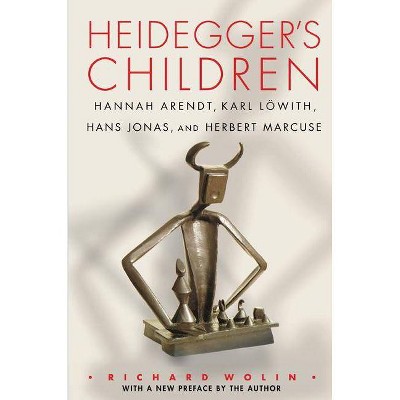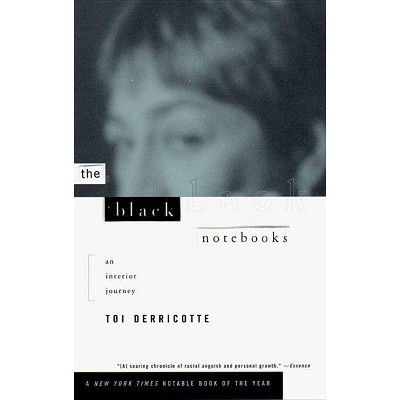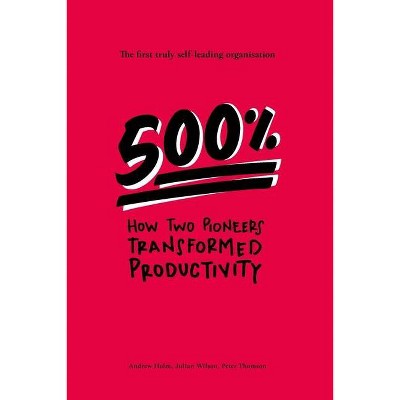Heidegger's Black Notebooks - by Andrew J Mitchell & Peter Trawny (Paperback)

Similar Products
Products of same category from the store
AllProduct info
<p/><br></br><p><b> About the Book </b></p></br></br>This book brings together an international group of scholars to discuss the ramifications of Heidegger's <i>Black Notebooks</i> for philosophy and the humanities. In contrast to both those who seek to exonerate Heidegger and those who simply condemn him, they urge careful reading and rereading of his work to turn Heideggerian thought against itself.<p/><br></br><p><b> Book Synopsis </b></p></br></br>From the 1930s through the 1970s, the philosopher Martin Heidegger kept a running series of private writings, the so-called <i>Black Notebook</i><i>s</i>. The recent publication of the <i>Black Notebooks</i> volumes from the war years have sparked international controversy. While Heidegger's engagement with National Socialism was well known, the <i>Black Notebooks</i> showed for the first time that this anti-Semitism was not merely a personal resentment. They contain not just anti-Semitic remarks, they show Heidegger incorporating basic tropes of anti-Semitism into his philosophical thinking. In them, Heidegger tried to assign a philosophical significance to anti-Semitism, with "the Jew" or "world Judaism" cast as antagonist in his project. <p/>How, then, are we to engage with a philosophy that, no matter how significant, seems contaminated by anti-Semitism? This book brings together an international group of scholars from a variety of disciplines to discuss the ramifications of the <i>Black Notebooks</i> for philosophy and the humanities at large. Bettina Bergo, Robert Bernasconi, Martin Gessmann, Sander Gilman, Peter E. Gordon, Hans Ulrich Gumbrecht, Michael Marder, Eduardo Mendieta, Richard Polt, Tom Rockmore, Peter Trawny, and Slavoj Zizek discuss issues including anti-Semitism in the <i>Black Notebooks </i>and Heidegger's thought more broadly, such as German conceptions of Jews and Judaism, Heidegger's notions of metaphysics, and anti-Semitism's entanglement with Heidegger's views on modernity and technology, grappling with material as provocative as it is deplorable. In contrast to both those who seek to exonerate Heidegger and those who simply condemn him, and rather than an all-or-nothing view of Heidegger's anti-Semitism, they urge careful reading and rereading of his work to turn Heideggerian thought against itself. These measured and thoughtful responses to one of the major scandals in the history of philosophy unflinchingly take up the tangled and contested legacy of Heideggerian thought.<p/><br></br><p><b> Review Quotes </b></p></br></br><br>A valuable addition to Heidegger scholarship.--Charles Bambach "Notre Dame Philosophical Reviews "<br><br>A highly accessible and valuable contribution to the debate . . . providing a nuanced overview of the basic positions that have begun to emerge. The editors are both distinguished Heidegger scholars, and they have brought together an equally distinguished group of contributors.--Jeff Love "H-Ideas "<br><br>There can be no last word on Heidegger's <i>Black Notebook</i>s and the incomprehensible and unjustifiable positions of one of the greatest philosophers of the twentieth century. Only a collective, plurivocal approach can help us read what is<i> </i>illegible. Avoiding the extremes of justification and excommunication, the authors in this collection succeed in this painful but necessary task.--Catherine Malabou, Kingston University and U.C. Irvine<br><br>An impressive collection that genuinely enriches the conversation on Heidegger's politics and philosophy.--Gil Anidjar, Columbia University<br><p/><br></br><p><b> About the Author </b></p></br></br>Andrew J. Mitchell is professor of philosophy at Emory University. He is the author of <i>Heidegger Among the Sculptors: Body, Space, and the Art of Dwelling</i> (2010) and<i> The Fourfold: Reading the Late Heidegger </i>(2015) and the translator of Martin Heidegger's<i> Bremen and Freiburg Lectures: Insight Into That Which Is and Basic Principles of Thinking </i>(2012) and<i> On Hegel's Philosophy of Right: The 1934-35 Seminar and Interpretive Essays</i> (2014). He was the organizer of the first U.S. conference on the <i>Notebooks</i> from which many of these essays are drawn. <p/>Peter Trawny teaches at the Bergische University Wuppertal, where he is the director of the Martin-Heidegger-Institute. He is the editor of several volumes of the Martin-Heidegger-Gesamtausgabe, including the <i>Black Notebooks</i>. His English-language publications include <i>Freedom to Fail: Heidegger's Anarchy </i>(2015) and <i>Heidegger and the Myth of a Jewish World Conspiracy </i>(2015), translated by Andrew J. Mitchell.
Price History
Cheapest price in the interval: 32 on November 8, 2021
Most expensive price in the interval: 32 on December 20, 2021
Price Archive shows prices from various stores, lets you see history and find the cheapest. There is no actual sale on the website. For all support, inquiry and suggestion messagescommunication@pricearchive.us




















